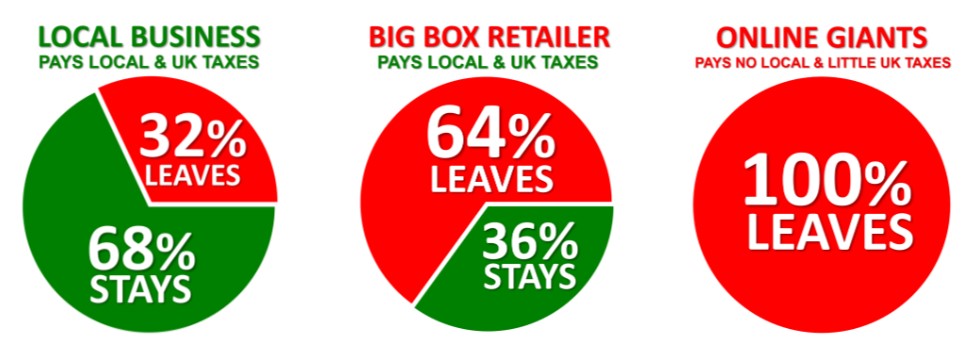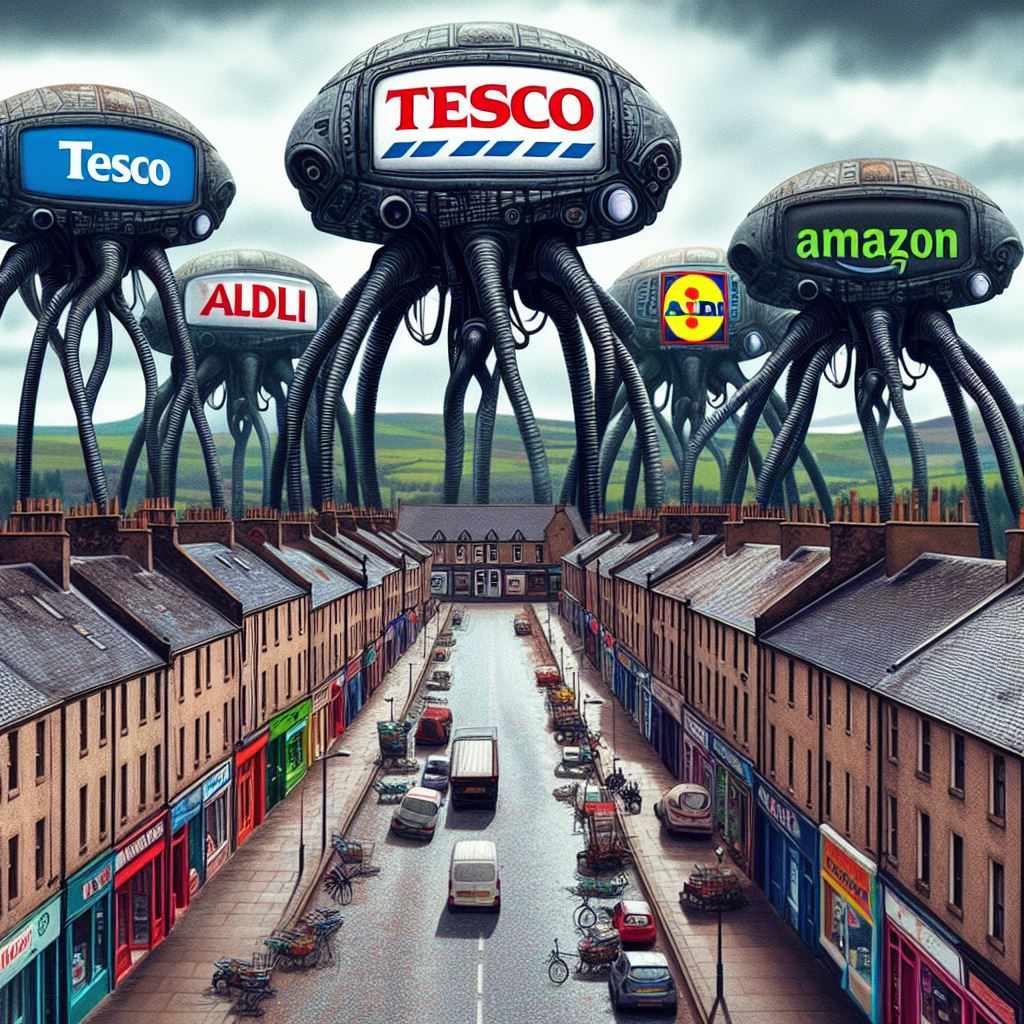The Decline of Local Public Services:
Speak to the average person in the UK and ask them what they think about their local council. You will more or less get the same response and that is their local council is rubbish, they try to tax anything that moves, they have sold this and sold that, or closed down so many things, and the council doesn’t care anymore. The people running the council are clowns, clueless and useless and all the same and probably get some derogatory comments about the councillors being on the take.
The Blank look of silence:
Some of their comments may be legit, but if you were to ask the same person WHY is their local council imposing these cuts? 99% of the time you will get the blank look of silence.
It’s Not a Local Thing!
It's true that local public services have been declining across the country since around the Mid-Noughties. Take Cupar, a small town in Fife, for example. The impact of these cuts is now very noticeable in the Cupar area. The fire station has been scaled back, police presence has significantly decreased, and there are no longer any cell facilities in the town. Cupar also lacks an ambulance centre, which is concerning given that the town is surrounded by smaller towns and villages that have seen their police stations close. Many essential public services have either disappeared or deteriorated, including schools, swimming pools, football pitches, sports facilities, libraries, and public toilets. Roads are being closed, only to be replaced with more potholes, while pavements crack and are overrun with weeds. The list of issues goes on and on.
NOT their fault!
Who is to Blame Game:
Here is the problem, it’s NOT their fault! These cuts to local services and facilities were not imposed wilfully by your local council but rather as a necessity to somehow try and balance the books as they saw their public purse dwindling as money left the local economy and their tax receipts dropped.
So, Where’s the Money Gone?
Money leaving your local economies is not new. It has been a long slow burn for the last 30-40 years, with the rise of the out of town centre BIG BOX Retailers such as Aldi, Lidl, Morrisons, Asda, Sainsbury, M&S and Tesco, and more recently accelerated by the big online retailers such as the like of Amazon who currently extracting an unprecedented and disproportionate large percentage of our local economy’s wealth and resources, which unfortunately has led to the decline and destruction of our local high streets and independent stores.

Simply Follow Your Money:
It's a simple fact, when your pound is spent at a local business, 68% of it STAYS and recirculates back into your local economy to be spent again. When your pound is spent at a Big Box Retailer 64% of it LEAVES your local economy, when your pound is spent with Online Giants 100% LEAVES, never to be spent in your local economy again!
It’s Not Rocket Science!
Buying from a local independent business helps to SAVE and RETAIN your local economy's wealth, local business and therefore local jobs.
Convenience is King and Money Walks!
The decline of the velocity and departure of the local pound began to accelerate at an unprecedented rate as the online shopping phenomenon started to take shape. Because Convenience is King, people unwittingly began to spend more and more money with online giants like eBay, ASOS Amazon etc. While using these platforms this led to the local money supply dwindling faster than ever, as wages earned by local people were being spent with businesses and strangers hundreds or thousands of miles away. This leads to a loss of income for local tax-paying businesses attempting to provide these products to local consumers at the best price possible.
It Is the Law of the Jungle:
The law of economies of scale tells you that if this continues this match-up only has ONE winner! “Amazon”. Simply because Amazon’s buying volume power means they can offer convenience and far more competitive prices and consumers will continue to unwittingly eat them up. Who can blame them as the average consumer has experienced continuous economic hardships due to the lack of local money since the financial crisis over a decade ago?
A Call to Arms:
This is a problem that we must address through action. To improve public services, we must strengthen the public purse of the local councils, so that they can invest in what matters to the local community. We must emphasise the importance of local business creation and strive for community cohesion and cooperation between local businesses and local consumers. This will encourage the creation of commerce hubs in the local area where local business owners benefit from increased consumer participation in the local economy. This is easier said than done, though; for there to be increased local commerce; there must be increased incentives for consumers to change their habits. This is where we believe we have created a solution that helps to slow down the money leaving our local economies.
The GETS Solution:
We are GETS (Grassroots Economic Trade Solutions) and we are excited to bring our unique digital toolbox for businesses and consumers to the market; we call it “getslocal”. This toolbox contains a great armoury of different business tools for local businesses to use to their advantage. Still, first and foremost, it is a digital hub where you can market your business on GETS Trade a B2B market and GETS Rewards a B2C Market for free or where you can create a tailored loyalty programme to suit your business's needs. We provide the arena for you to stake your claim for custom in the local community, and you do the rest; we are here to help all the way, but this journey is yours to craft. We encourage you to get employees involved in your store management and marketing on the platform; this platform can go as far as you are willing to take it.
The Great Call of the Footfallers
GETS long-term ambition is to see increased footfall in the high streets of our local towns around the country, concurrent with this increased local consumer spending. This higher local spending translates into increased tax receipts for local councils, an increase in local tax receipts would completely transform the investment landscape for that local area. Councils could invest more to improve local services and infrastructure with the confidence that local economies showed signs of sustainable growth. This is a fundamental analogy to use, but it touches on the vital point that consumers must invest in their local economy to improve public services. The health of the two is intertwined.


